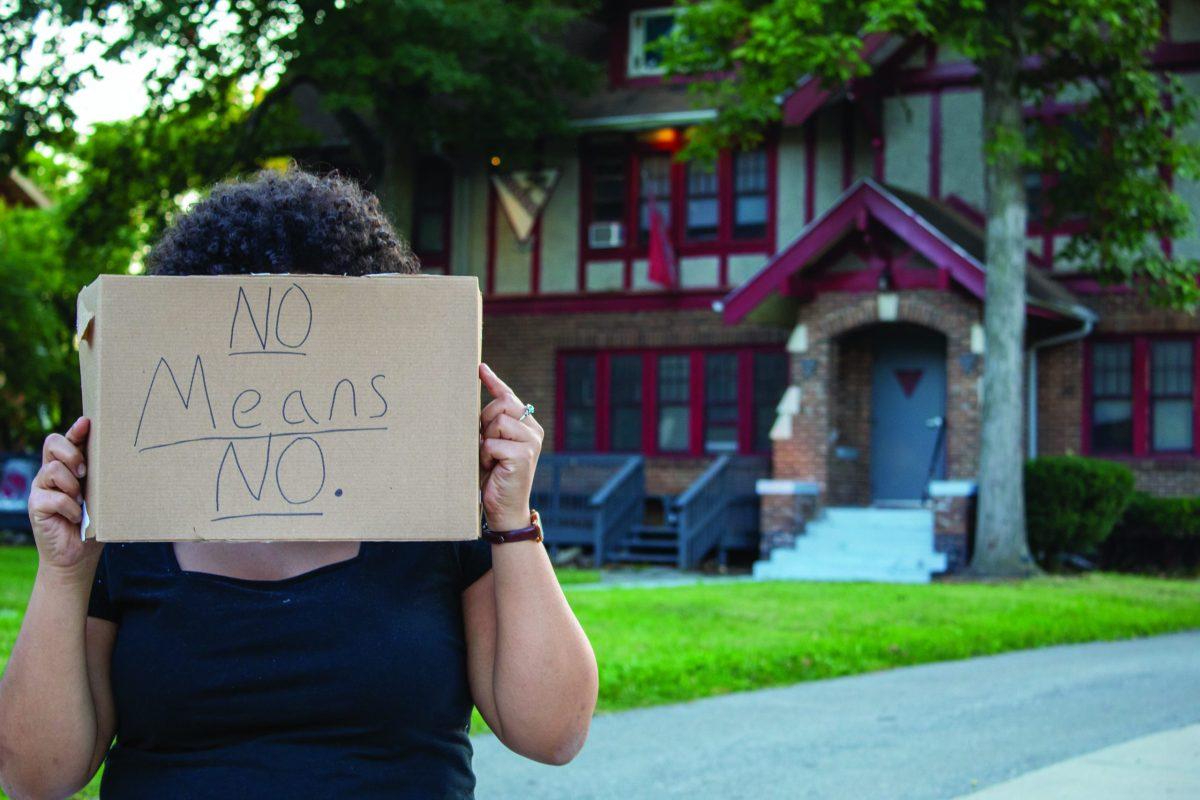Last week, a student-led protest at the University of Iowa became the latest in a series of protests against sexual assaults committed by fraternity members.
Students organized the protest after learning of an alleged sexual assault by a Phi Gamma Delta (FIJI) member last year, which organizers say the university knew about and chose not to act on. FIJI — and the University of Iowa — are not alone. Several studies conducted during the past two decades have found that men involved with fraternities are more likely to commit sexual assault, including a 2019 study from Sage Publications and a 2007 study that concluded that fraternity members are three times more likely to commit rape than other college-aged men.
“Peer pressure and frat culture breed that type of person,” said a graduated member of the Drake FIJI chapter who chose to remain anonymous. “A culture that surrounds itself with alcohol and doing the most crazy shit night after night gets to a point where someone takes it past the point of harmless fun. It’s honestly a very destructive culture inside, one where aggression is often resorted to.”
Ace Tipton, president of the Phi Delta Theta fraternity at Drake, said that cases like the University of Iowa protest can serve as a lesson to other fraternities.
“I have seen all the news about the protests at U of I, and we have discussed this as a chapter because we know that this has been an issue at different colleges as well and have used it as a teaching point that all members are always wearing letters and always representing the fraternity,” Tipton said. “From the knowledge I have on the specific case at University of Iowa, it looks like they have not implemented any sort of way as a chapter to correct their previous offenses, which would be an issue with the culture of the fraternity which warrants the chapter being removed from campus.”
Saylor Schwab, president of the Drake chapter of the Sigma Alpha Epsilon (SAE) fraternity, agreed that fraternities that tolerate sexual assault should not be allowed to continue operating on a college campus.
“Sexual assault is disgusting, and I believe anyone guilty should be properly punished,” Schwab said. “It is also good to remember that an entire chapter of men is not guilty of the crimes of a few. However, any chapter that tolerates sexual harassment or assault should not be allowed to continue operating.”
Schwab said it is imperative to address the issue of sexual assault within fraternities and implement programming to make it clear to fraternity members that it is not tolerated.
“Unfortunately, many fraternities across the country are not properly educating their members how to be respectful in relationships,” Schwab said. “Sexual assault is not tolerated at SAE, and there is no room here for anyone who does not uphold the highest standards of respect. Educating our members and holding them to the standards of respectful relationships with mandatory consent is a priority at SAE.”
Tipton said Drake also helps educate students, including fraternity members, about sexual assault awareness and prevention.
“I think the reason there is such a prevalence of rape and sexual assault in fraternities is since there is not much education around the issue,” Tipton said. “Fortunately, I feel as though our wonderful staff in FSL at Drake through HIRO programming, as well as the Bulldogs Foundations course, which I believe was a required course for all first-years starting my first year on campus, has done a great job of giving an extensive curriculum.”
However, according to the anonymous FIJI graduate, these trainings are not always effective within the peer-pressure environment of a fraternity.
“There was indeed a mandatory sexual assault meeting we had to go to every year coupled with a few others like diversity and alcoholism,” he said. “However, it should be noted that many of the guys in the house did not take these seriously.”
Tipton said that since Phi Delta Theta is a relatively new fraternity chapter at Drake, it is important to make sure members take the conversations seriously.
“We also are not afraid to have conversations about current issues such as the multiple FIJI chapters being accused of rape and sexual assault, which I appreciate that our members can do,” Tipton said. “In our young history as a new chapter on campus, we have not had this issue, but therefore we lean so heavily into educating our members about this topic.”
For Tipton, who joined Phi Delta Theta despite never thinking he would join a fraternity, it is important to break the stereotypes of fraternities rather than accept them as fate.
“I was very aware of sexual assault and rape being an issue amongst fraternity life as a first-year student on campus,” Tipton said. “Part of forming a new fraternity was we had a good chance to establish a culture as an “anti-frat” fraternity, in the sense that we could be a place where we would not do the things that people always see in the news out of fraternities across the nation.”







